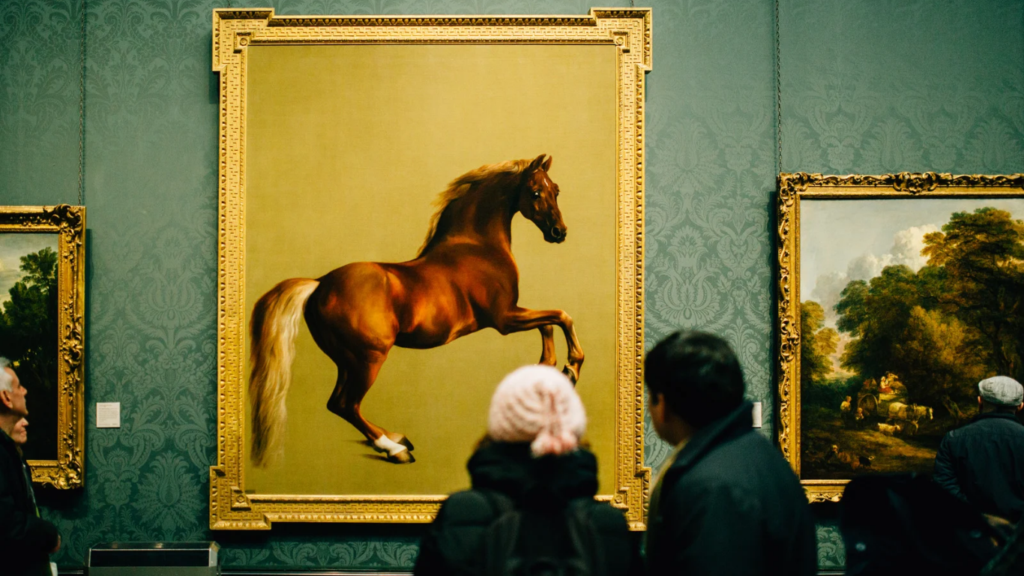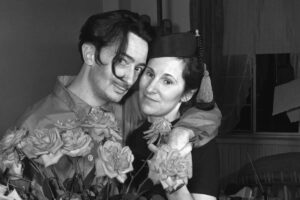There is hardly a Russian-speaking person who has never once uttered the phrase "Russian culture". But what does it really mean? What meanings and values are contained in these two words? We propose to look into it together.
By the way, about 5 stereotypes about Russian culture, we wrote earlier this article. If you have a spare moment, we suggest you stop by.
- What is culture in general?
- Peculiarities of Russian culture
- Cultural values, relationship to language
- Who can be called a cultured person?
- Russian culture and its influence on the rest of the world
- The reading time is 6 minutes.
What is culture as a social phenomenon
Originally, the word "culture" had nothing to do with the meaning we put into it now. You may have noticed that farming in English has the root "-culture"? Whereas in Russian, plants grown by humans are called "cultural". As opposed to wild ones, which grow on their own.
How did it happen that the same root has several unrelated meanings? The word "culture" was originally used by the ancient Romans to mean "farming". Much later in European languages, culture came to mean literally everything created by human hands.
Interestingly, the Russian language used "education, enlightenment" instead of the word "culture" until the 19th century.
As we mentioned, the concept of culture has expanded so much over time that it now includes:
- everything that is man-made and not part of nature
- values and beliefs of a certain ethnos - this includes religion, traditional rites and rituals
- anything that can be classified as art, such as literature, painting, music, sculpture, etc.
- spiritual development and awareness of one's place in the world
In the course of history, each civilization accumulates its cultural layer. And with the complete disappearance of its speakers, the language is lost. Just like culture, which stops its development and dies. That is why it is important to pass on our values to new generations, to instill in children the desire to know their roots and preserve their native language.
Peculiarities of Russian culture
As many nations as there are, so wide is the diversity of cultures. Take Russian culture, for example. On the one hand, it is unique. At the same time, it cannot be considered as something independent, because it was influenced by different circumstances.
What are those circumstances? For example, historical ones. Everyone knows that before the adoption of Orthodoxy, the Slavs worshiped different gods. And it still has echoes in folk customs, for example, in the tradition of "caroling" before Christmas. Besides, we should not forget that Russia was under the Tatar-Mongols for more than 200 years. And this affected the Russian language and the everyday life of ordinary people.
Continuing on the topic of religion, Russian culture has certainly been strongly influenced by Orthodoxy. What is the ancient Russian art of icon painting and church frescoes from the 10th-13th centuries? Despite attempts by the authorities during the Soviet years to physically destroy any reminders of religion, many unique examples of church architecture have survived and are still admired today.
On the other hand, Russian culture is multinational. On a vast territory, Russia has united hundreds of different peoples, with their own languages and dialects, rituals, customs and even religions. The result is an extraordinary mixture of traditions, folk legends, and values, which are called Russian culture.
Language and culture
As we know, there is no culture without language. There is a close relationship between them. And scientists are still debating which of them influences each other more.
Language does not just describe the life and culture of a people. As soon as a child is born, he is taught his mother tongue. It is through language that he learns the basic concepts that surround him. He is then introduced to the customs and traditions of his native culture through fairy tales, folk songs and nursery rhymes. The older the child gets, he becomes more immersed in his culture through language. If the family changes residence during this period and consequently plunges into another culture, the child will begin to learn the new language and culture. Depending on the age, the child may completely or partially lose touch with his/her native language. Therefore, the issue of preserving linguistic and cultural traditions is acute in migrant families.
Let us remember Russian history. As we know, in different centuries there was a fashion among the Russian nobility for different European cultures - German, then French. And the nobility grew up without knowing the Russian language from birth. Already in adulthood, many spoke Russian with an accent or in dialog switched to another language. And in the middle of the 19th century, thanks to the great Russian writers, interest in the Russian language and culture began to change. Thus, many cultural traits were reflected in literature and scientific writings.
Who is a cultured person
Where did the expression "cultural person" come from? After all, as many cultures as there are, there can be so many manifestations of that culture in its bearers. It is true that in every society there are different submissions about what qualities a cultured person should possess.
For example, in Russian culture in pre-revolutionary Russia, this was the name given to a person, as a rule, of the upper class. It was believed that the more educated he was, the more he knew several languages and could speak beautifully, the more cultured he was. Thus, ordinary peasants without education were destined to remain "cultureless".
But the revolution of the early 20th century changed everything. Cities began to grow rapidly, and mass resettlement of peasants to the cities began. To increase the literacy of the population, the new authorities actively engaged in their education and enlightenment. So there was a mass craze for theater, museums, libraries. All this became available to wide segments of the population. And as a result, the notion of a cultured person was supplemented with an interest in the arts, a broad outlook and moral principles.
In addition, a person's appearance has always been assessed from the outside. It is not without reason that there is a proverb in the Russian language: "one meets a man by his clothes and sees him off by his mind".
Today we are witnessing a growing interest in human individuality and spiritual development. As a result, to the concept of a cultural person we can now add creativity, out-of-the-box thinking and the ability to go beyond the ordinary.
How Russian culture has influenced the rest of the world
It is interesting that when we talk about the influence of Russian culture on the rest of the world, we are referring mainly to representatives of the 19th and 20th centuries. Why? The point is that until the 18th century, there was no concept of secular culture in Russia. Almost all literature was religious - psalms, prayers, hagiographies of saints were copied in temples. At the same time, painting developed exclusively in icon-painting workshops. Russian music was, folk music. Therefore, it was not attributed to culture.
If we trace the moment at which the rapid development of the arts began in Russia, it is the late 18th and early 19th centuries. And if we talk about literature, we will again return to A.S. Pushkin, with whom it is believed to have begun.
Nevertheless, for a small period of 200 years, Russian culture has raised a huge number of its representatives. And now there is not a single educated person who would not name at least one Russian surname in any direction of art.
Let's consider the main representatives of Russian culture, about which the whole world knows.
As is well known, ballet originated in Russia and became an integral part of its culture. Tchaikovsky's name became world famous thanks to his three ballets. "Swan Lake", "Sleeping Beauty", "Nutcracker" are still staged on world stages.
In addition to ballet, in the 20th century Russian theater gained worldwide recognition thanks to the brilliant system of K. Stanislavsky. This overturned the previous ideas about theater, where the main task of the actor became complete immersion in his character.
We can also long list the names of the classics of Russian literature - Leo Tolstoy, Fyodor Dostoevsky, Anton Chekhov, Ivan Bunin, Vladimir Nabokov. And the work of Alexander Sergeyevich Pushkin we have a separate article dedicated to it.
Incidentally, in December 2024, the British newspaper Guardian noted a surge of interest in F. Dostoevsky's novel "White Nights" among young people around the world. Could a writer have dreamed of such success more than 150 years ago?
This proves that Russian culture continues to be relevant nowadays. For example, works of Russian literature constantly appear on big screens outside Russia. And, finally, Russian classical music is often heard in foreign movies and TV programs.
In conclusion, we note that in our Russian language and literature lessons much attention is paid to the preservation of Russian culture. The children learn about the traditions and history of Russia, as well as familiarizing themselves with key figures.
It is free to try lessons at Palme School. To register for an introductory lesson, fill in the registration form below.







